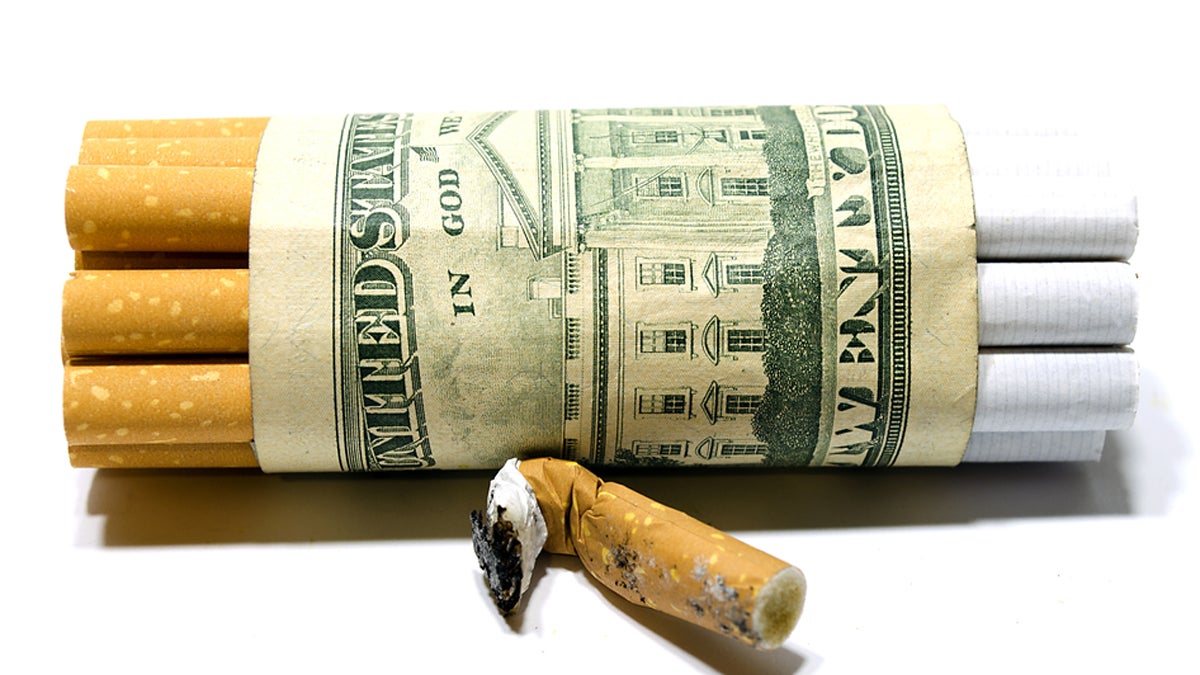Can $2 cigarette tax keep Philly young people from picking up a habit?
 Photo via ShutterStock) " title="shutterstock_175429673" width="1" height="1"/>
Photo via ShutterStock) " title="shutterstock_175429673" width="1" height="1"/>
(Photo via ShutterStock)
A proposed cigarette tax hike in Philadelphia could send tens of millions of dollars to cash-strapped city schools, and health officials predict a boon for health too.
Past studies have underscored the price sensitivity of smokers: If you raise cigarette prices, the number of people who quit smoking increases too.
Now, Temple University health economist Andrew Sfekas and his team have studied a different health policy goal. They wanted to better understand to what extent price hikes keep young people from starting to smoke in the first place.
The researchers call that measurement “initiation.” Sometimes, the term is defined as the age when someone tries their first cigarette; other researchers ask at what age an individual becomes a regular smoker.
Sfekas’ study suggests that a $2 cigarette tax would result in a 27 percent decline in the probability of people age 13 to 22 becoming regular smokers. The team estimates a 12 percent decline in the probability of people age 7 to 22 ever trying a cigarette.
There is drop-off, “but not as much as you might think,” said Sfekas, an assistant professor with the Department of Risk, Insurance, and Healthcare Management at Temple University’s Fox School of Business.
At first, many young people are simply experimenting with cigarettes, he said.
“They want to try it, and they don’t actually –- at the time –- appreciate how much it’s going to cost them in the future because they don’t know whether or not they will be light or heavy smokers or continue doing it at all,” Sfekas said.
Think back to your own youth, he said. At first, lots of young people light up only when they are drinking or they limit their smoking to the weekends.
“That’s the kind of thing that doesn’t affect your finances all that much. When it starts to affect your finances is when it becomes a daily habit,” he said.
The idea to raise the cigarette tax in Philadelphia has been kicking around for years, and in May 2013, the Philadelphia Department of Health issued a fact sheet on the link between cigarette taxes and health.
In Pennsylvania, the average price for cigarettes is $5.85. If the state Senate approves the proposed increase, Philadelphians might pay closer to $8 on average.
About 25 percent of adults in Philadelphia smoke. That’s the highest rate among the country’s largest cities.
Experts expect ‘leakage’ as smokers buy outside city
The cigarette tax under consideration would apply only to Philadelphia.
Dan Romer, associate director of the Annenberg Public Policy Center at the University of Pennsylvania, said a regionwide or statewide tax increase might go further to improve population-level health — and to prevent “leakage.”
Leakage, or tax avoidance, occurs as consumers head to the next county or state to buy cigarettes.
“People will go out of state to buy a couple of cartons, but people are creatures of habit — especially with nicotine. They are going to want to get that package of cigarettes as soon as they need it,” Romer said.
David Merriman, a professor at the University of Illinois at Chicago, said the policy lesson from other cities is that officials should also be ready for organized attempts to evade a tax increase.
“If the policy is designed, to raise revenue, yes, that’ll work. If the policy is designed to reduce consumption, yes, that’ll work. But you’ll have to deal with avoidance as well. You’re going to get more of it,” he said.
In Chicago, Merriman sent his researchers to pick through cast-off cigarettes and litter and found that as many as 75 percent of the smokes they found had the tax stamp of a municipality outside of the city.
“If it’s expensive near where you live, but cheap in the next place over, it might be worthwhile to make the drive,” Merriman said. “You get guys that drive to the low-tax area, bring cigarettes back, and sell them out of the back of their car. There’s some kind of illegal market that develops.”
Both Chicago and New York City — where cigarette taxes are higher than average — have introduced programs to clamp down on black-market sellers.
WHYY is your source for fact-based, in-depth journalism and information. As a nonprofit organization, we rely on financial support from readers like you. Please give today.

